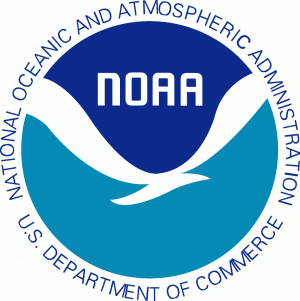
Before you can take the proper course of action during and emergency, you must first know that the emergency is occurring. Cobb County uses several tools to notify the public about disasters and emergency situations, working together to ensure that the maximum numbers of people are notified of an immediate, life threatening emergency.
Outdoor Warning Sirens
Cobb County has more than 70 outdoor warning sirens to alert residents during a weather-related emergency, including ten sirens that can also broadcast voice messages.
The intent of warning sirens is to alert people who are outside that an imminent danger is approaching; they are not designed to be heard within a home or other building.
Cobb County conducts outdoor warning siren system tests at noon on the first Wednesday of each month, sounding the sirens for 3 to 5 minutes. In the event that there is inclement weather on the first Wednesday of the month, the test will be postponed until the following day, the first Thursday of the month.
County-wide Weather Siren Locations
The siren system shall be activated for a period of 3-5 minutes in duration when one of the following conditions exist. These conditions include but may not be limited to:
- The National Weather System (NWS) issues a tornado warning.
- A tornado has been spotted by a trained storm spotter.
- Additional weather warnings necessitating public warning are issued.
- Hazardous Materials incidents have occurred whereby evacuation, shelter-in-place, or other protective action is necessary.
- A National Security Event has occurred.
- Any other incident or impending danger where the CEMA Director or Director determines the need for public notification and protective action.
All sirens can be used to warn residents to seek shelter. However, only sirens that can deliver voice messages will be utilized for any other protective action.
The entire siren system and all components are diagnostically and audibly tested at 12:00 p.m. on the first Wednesday of every month, conditions permitting. The sirens shall sound for a period of 3-5 minutes in duration. If inclement weather conditions exist on the first Wednesday, then the test shall be postponed until 12:00 p.m. the first Thursday at the direction of the CEMA Director. If inclement weather also exists on the first Thursday, then testing for that month shall be cancelled at the direction of the CEMA Director.
During National Severe Weather Awareness Week, the standard monthly siren test date and time will adjust in conjunction with the State Wide Tornado Drill.
Local Network & CobbTV

During severe weather events, residents should watch local television news channels to monitor events closely.
Local television stations typically increase news coverage as necessary during severe weather, and preempt regular programming when warranted, to keep the public informed. Cobb County also has its own local government access channel, CobbTV, which broadcasts alerts and information as needed.
Web Alerts
Cobb County Communications offers a free CobbLine subscription service that provides you with emergency alerts issued by Cobb’s EMA, Public Safety, Transportation, and Water System Departments.
Subscribers to this service receive emergency alerts, press releases, and weekly news letters via email.
Stay informed by adding these mobile apps onto your smartphone!
Radio Stations
Radio stations usually have hourly news briefs and also closely monitor current conditions when circumstances dictate. In the event of power failures, every home should have a portable radio with spare batteries.
NOAA Weather Radios

National Oceanic and Atmospheric Administration (NOAA) weather radios may be purchased at most retailers and are the primary tool for alerting people of weather and other emergencies.
In conjunction with Federal, State, and Local Emergency Managers and other public officials, the National Weather Service (NWS) also broadcasts warning and post-event information for all types of hazards – including natural (such as tornadoes or hurricanes) and environmental (such as chemical releases). NOAA weather radios will sound an alarm when the National Weather Service issues an emergency alert, followed by a broadcast with details about the emergency; some models can even be programmed for specific geographical areas, allowing you to determine the area(s) covered for which you receive alerts. Visit www.weather.gov/nwr for more information.
Procedures for programming weather radios varies with the brand and model of NOAA weather radio. You will need the owner's manual for your radio in order to program it correctly. If your NOAA weather radio is Specific Area Message Encoding (S.A.M.E.) capable, you may obtain the S.A.M.E. codes for your county by visiting the National Weather Service website at www.weather.gov.
